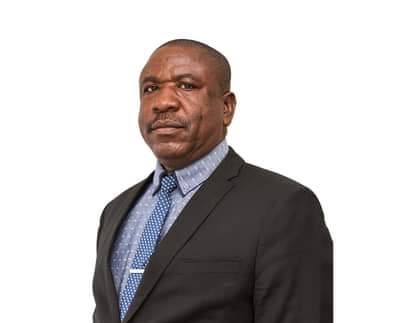By: Alieu Jallow
Mr. Binga Dinshiya, the Director of the Civil Litigation and International Law Department at the Attorney General’s Chambers and Ministry of Justice, has urged the Supreme Court of The Gambia to disregard the opposition’s lawsuit seeking to nullify the appointments of Fatoumatta Jahumpa Ceesay, Sheikh Tijan Hydara, Lamin Bojang, and Ousma Jatta alias Rambo in the foreign services. The UDP’s position is that they are serving executive members of political parties and, therefore, their appointment in the public service is unconstitutional, contrary to sections 166 and 167 of the constitution and 3014 of the General Orders.
“It’s our submission, my lord, that the said appointment did not contravene 170 and General Orders (GO),” Binga submitted.
The state counsel emphasized that the plaintiff had not presented sufficient proof to qualify their suit.
“We submit that, with all honesty, the plaintiff has no proof of their case. Secondly, regarding the plaintiff’s assertion that the defendants are public officers, it is our submission that they are public officials and, by representative appointments, they are subjected to the General Orders (GO). We submit that the court should dismiss the plaintiff’s case as there is no sufficient proof,” the state counsel stressed.
Mr. Binga further submitted that the President is vested with the powers to appoint any official to the public service of The Gambia, noting that there is no bridge or act that warrants the declaration of Fatoumatta Jahumpa Ceesay.
Binga further submitted that Ousman Jatta’s appointment is properly based on civil service regulations and foreign services provisions, noting that the opposition in their submission have not made mention of any provision of the foreign services which bridges his appointment, thus their submission was mere assumptions as they failed to produce any material contrary to oral or documentary proof. General Lamin Bojang, the military attaché to the Republic of Guinea Bissau, is another bone of contention. In his submission, counsel for the state outlined that the plaintiff hinted at his qualification as a military attaché.
“Our submission is that he is competent, qualified to serve as a military attaché by virtue of his qualification, his profession which was in the military. My lord, it is our submission that the plaintiff has not proven otherwise.”
Another bone of dissent is his role as the party leader of ANRD, an assertion that the state counsel states that the plaintiff has not proved.
“My lord, we submit that there is no document before this honorable court to show that Mr. Lamin Bojang holds any position in the political party which the plaintiff is claiming. He is a political leader, my lord, the same submission on Lamin Bonjang being a political leader is unsubstantiated.”
“We urge this court to disregard their submission on this issue. We refer this court to section 102 of the Evidence Act: whoever asserts must prove. The plaintiff has not proven that the said Lamin Bojang is a political leader.”
The state representative questioned the video clips played which were admitted as exhibits p1 to p6, relating them as mere speculations, pointing out inconsistencies in the witness’s testimony on the dates of the congress.
“At one point, the plaintiff in their paragraph 9 said the congress was held in Janjanbureh in December 2022. In another paragraph, the witness PW1 testified that the congress was held in January 2022.”
Binga conveyed that the Court should not rely on video clips fetched from social media to prove issues of constitutional importance. He summed up that UDP should have obtained information about party leadership from the electoral body (IEC) to equip the court instead of relying on social media videos to prove their lawsuit.
“We submit that in the event of inconsistency, the court need not rely on it. We submit on this issue that this honorable court cannot be dragged into believing or relying on video clips on social media to prove an issue of constitutional importance. Why? There are proper legal procedures to do so. The election act made it clear that such information of party holders can be obtained from the electoral body IEC.”
In his reply, Lawyer Ousainou Darboe emphasized that political parties in his country have leaders and that they are officeholders.
Darboe brought up how Sheikh Tijan Hydara of GANO went into an alliance with the NPP noting it was not a political party that contested the last presidential election so there is no need to lead any evidence.
He argued that Mr. Bojang is a clear testimony of ANRD’s face. He urged the court to enter judgment in favor of the plaintiff.




